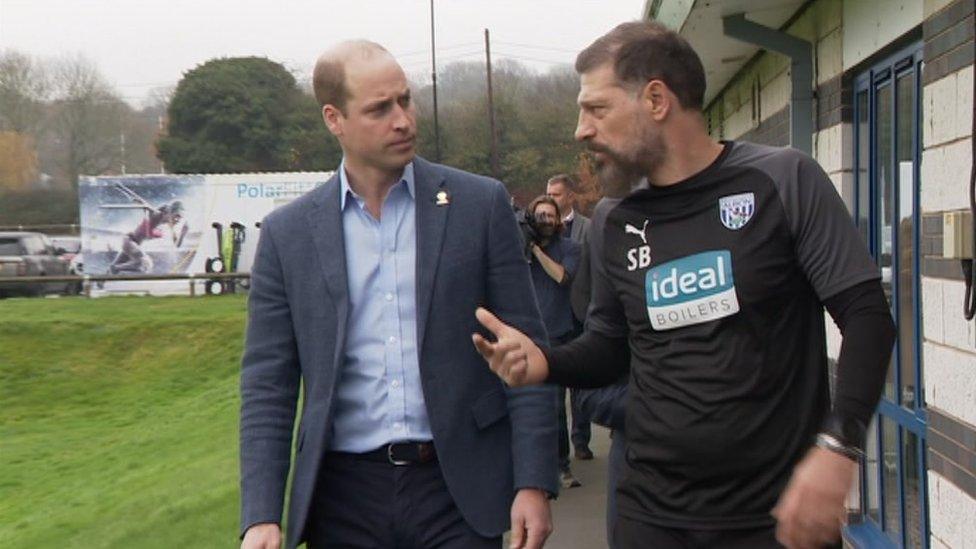‘I had PTSD - football is a reason I'm alive today'
- Published
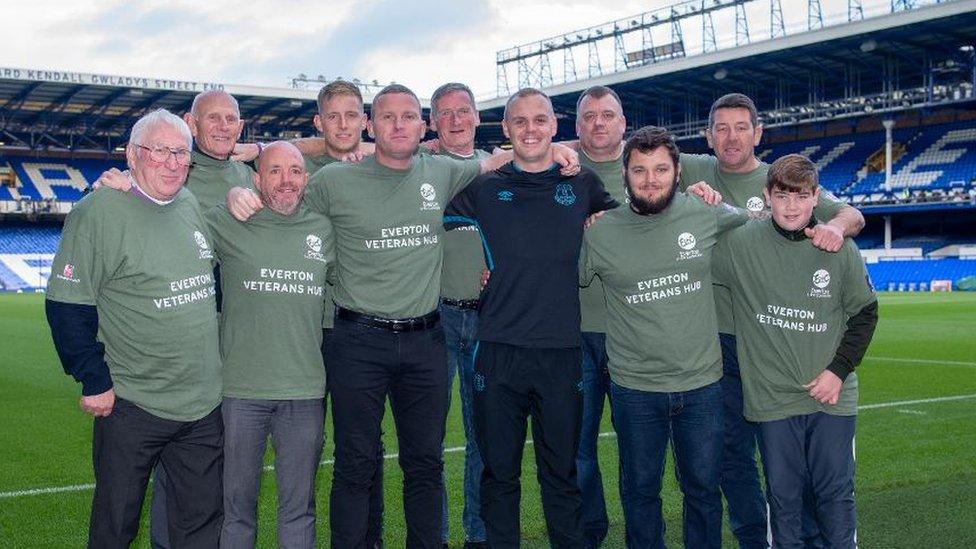
Dave (in blue) credits one of Everton's mental health schemes with saving his life
If you're tuning into watch the FA Cup fixtures this weekend, the football is due to start slightly later than usual so a film about mental health can be shown.
It's narrated by Prince William and encourages football fans to look after their mental health.
The video's been made as a collaboration between the FA and mental health charities Every Mind Matters and Heads Together.
"To do it on a platform at football games is just fantastic," says Everton fan Dave Curtis.
His team take on Liverpool at Anfield on Sunday in the third-round's most high-profile game.
"You've got 55,000 people there watching it so it's just fantastic to be raising this awareness. It's something that's very close to my heart."
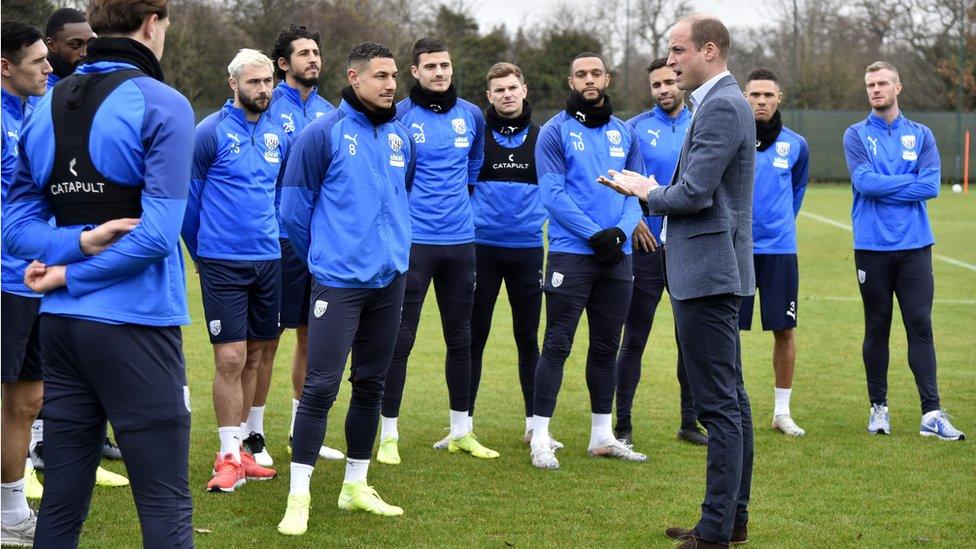
Prince William met with West Brom players last year as part of the campaign
Dave served in Afghanistan in 2009 and credits one of Everton's community schemes for him being alive today.
"On the eighth day of my tour a suicide bomber drove into the back of the vehicle I was driving and blew himself up, obviously injuring me and a friend of mine that was next to me... and he killed a friend of ours that was in the back, who was a US Marine."
Three years later Dave was diagnosed with post-traumatic stress disorder (PTSD). That, combined with injuries from the bombing, meant he was medically discharged from the Army.
"At a time in my life where I was sort of at the bottom of a dark hole, Everton In The Community came along.
"And I say it every day - they're a massive reason why I'm still here today."
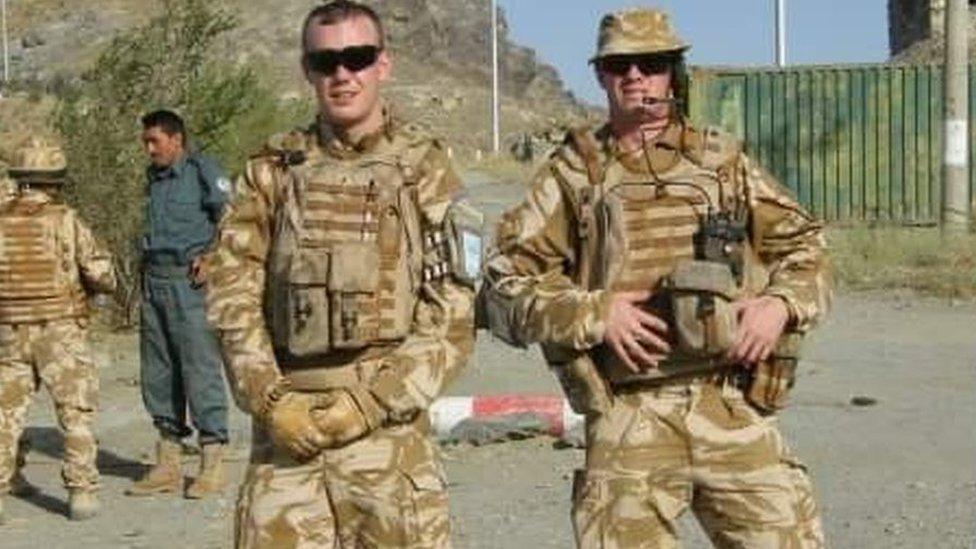
Dave (left) was in a "dark hole" when he found out about Everton's scheme for veterans
The club ran a scheme for veterans where they could play football and meet Everton players.
Dave says he met fellow veterans there who were able to assure him that life could still get better and there was "light at the end of the tunnel".
"The first session that I went down to, it saved my life."
Dave is now a project co-ordinator for a separate veterans' scheme at the club and says it works as his therapy.
"Nine times out of 10 I'll speak to a veteran or a family member and we've been through similar situations.
"By doing that, it makes me feel better about myself. It takes away any negative thoughts I might have."
'Football is a vehicle'
The English Football League also recognises the role football can have in helping improve mental health - partnering with mental health charity Mind since 2018.
Lots of football clubs within the league run their own schemes to help fans - in particular men - to open up.
"Getting men to talk about mental health has always been a challenge and that's been well recognised," says Nigel Plant, who runs Notts County's On the Ball programme.
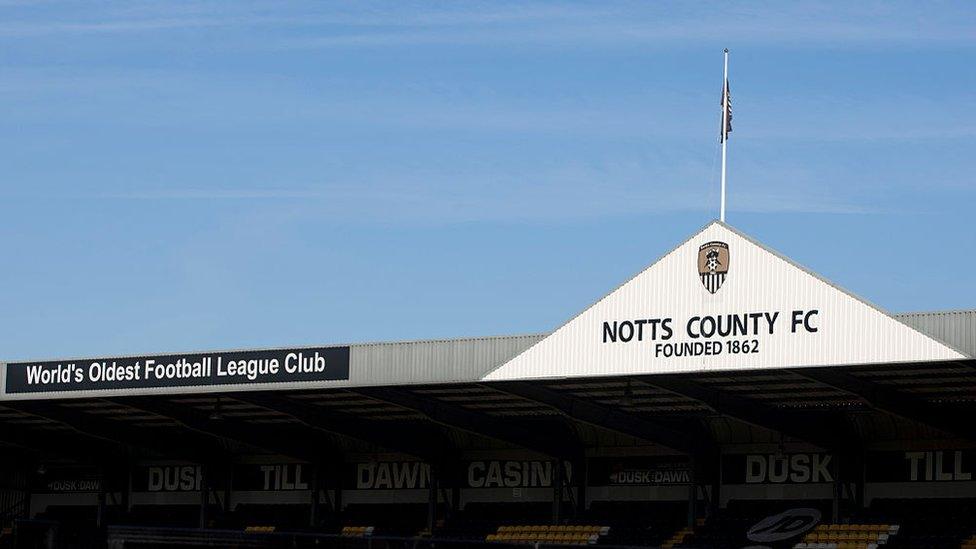
Notts County have run a mental health scheme for their fans since 2006
"We bring men from around Nottingham together to play football. But the focus really is on providing opportunities for people to meet and to talk.
"Many of the people that come along to the sessions have found themselves to feel socially isolated and out of touch with other people.
"But people are often drawn to football and drawn to professional football clubs.
"So that acts as a vehicle for us to be talking about mental health and wellbeing and to talk about things like social skills and mood and depression and anxiety."
Prince William speaks to Premier League legends about why mental health is important
A typical session might start with some drills with the ball - with professional coaches - and a five-a-side match. But it will progress into discussions about issues around mental health.
"We'll start our discussions very often around something that's been happening on the football pitch - it might be a manager who's looked stressed out on the pitch or an event that has happened on the pitch," says Nigel.
"And we might use that to talk about what we think's happening there and why.
"Then we'll use that as a vehicle to talk about our own lives and think about how we respond in similar situations and whether there's things that we can learn out of that."
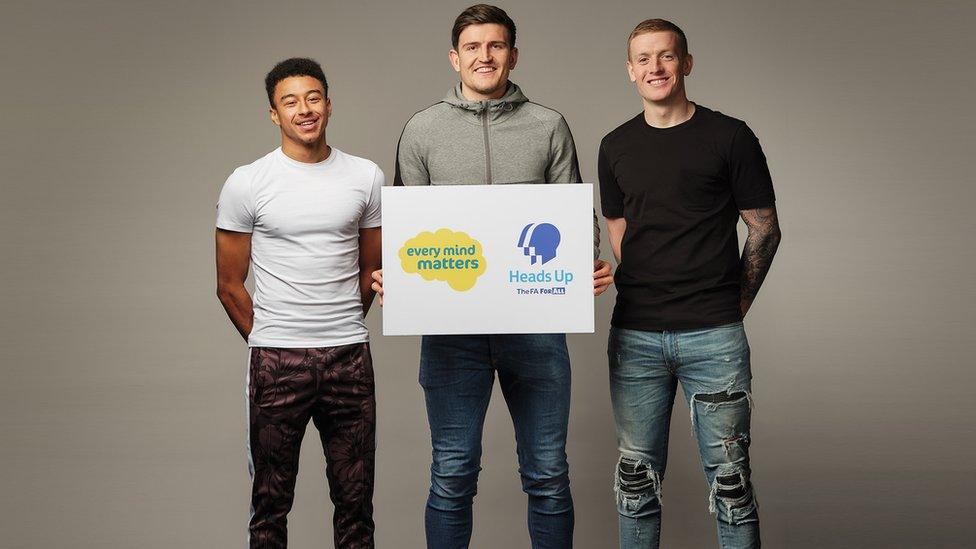
Jesse Lingard, Harry Maguire and Jordan Pickford are three England players involved with the campaign
Notts County has a separate programme that caters to women in the community and Nigel says the most important thing in both cases is creating a comfortable environment.
"Coming along to a project is a big issue for some people because it's the first step in recognising that you might have an issue you want to work with to resolve.
"We tend to talk about emotional health because talking to people about mental health often puts people off.
"They tend to think, 'This isn't for me, we're talking about something that's about mental illness - and I don't identify myself in that way'.
"If you talk to people about how they might improve their health and their wellbeing, how they may improve their mood or how they deal with particular situations, people feel that they can relate to that."


Follow Newsbeat on Instagram, external, Facebook, external, Twitter, external and YouTube, external.
Listen to Newsbeat live at 12:45 and 17:45 weekdays - or listen back here.
- Published3 January 2020

- Published28 November 2019
